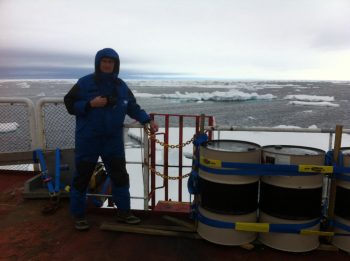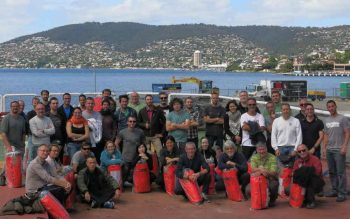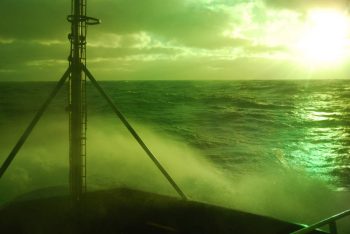Didier Schmitt is a member of the space Task Force at the European External Action Service. He is a regular opinion writer in major newspapers and magazines and has published a book on foresight. He will be contributing to this blog during his visit to Concordia – this entry was sent from the Antarctic Ocean:
Four days on the “Gastrolabe”… I heard that ESA astronaut Thomas Pesquet had no space sickness, lucky him. Crossing the 50th and the 60th parallel is a challenge, especially with our flat-bottomed ship. But we were lucky as the pitch, yaw and roll were ‘only’ ±20 degrees, it went up to 45 during the trip in November!
Onboard everyone has now adapted to the rough seas, judging from the crowded canteen. Scientists on board are experts in all kinds of disciplines such as meteorology, glaciology, plankton or penguins. The support staff is also varied: from IT technicians to bakers, mechanics and doctors.
Outside, on the deck I am more conscious than ever before that we are on the surface of a planet that is floating in the Solar System. There is no one around within 1000 km. Due to the ozone depletion, the UV-radiation is harsher. The day-night cycle has changed significantly: the sun now sets around 23:30 and rises around 3:30. We cannot see the Milky Way.
Spotting the first icebergs is just an incredible feeling. They form by detachment from the massive continental glaciers; they can be 45 m high, which means 450 m underwater! We have reduced speed significantly in the ice pack. We are like a spaceship crossing an asteroid belt. We use SAR images provided by the European Maritime Safety Agency to choose the best route. In addition we use a scouting helicopter with an ice expert on board. Getting the right satellite data in time is a challenge. Programming needs to be done 24 hours in advance, but we need to change course as the pack moves due to ocean currents and strong winds. A ten-hour time-difference with Europe makes it even more difficult. Another limitation is the low bandwidth we have to download data via Iridium.
We are in a very dynamic situation. What comes next is the unloading of passengers and goods; we already know that we’ll face an unforeseen situation, as you will discover soon.







Discussion: no comments